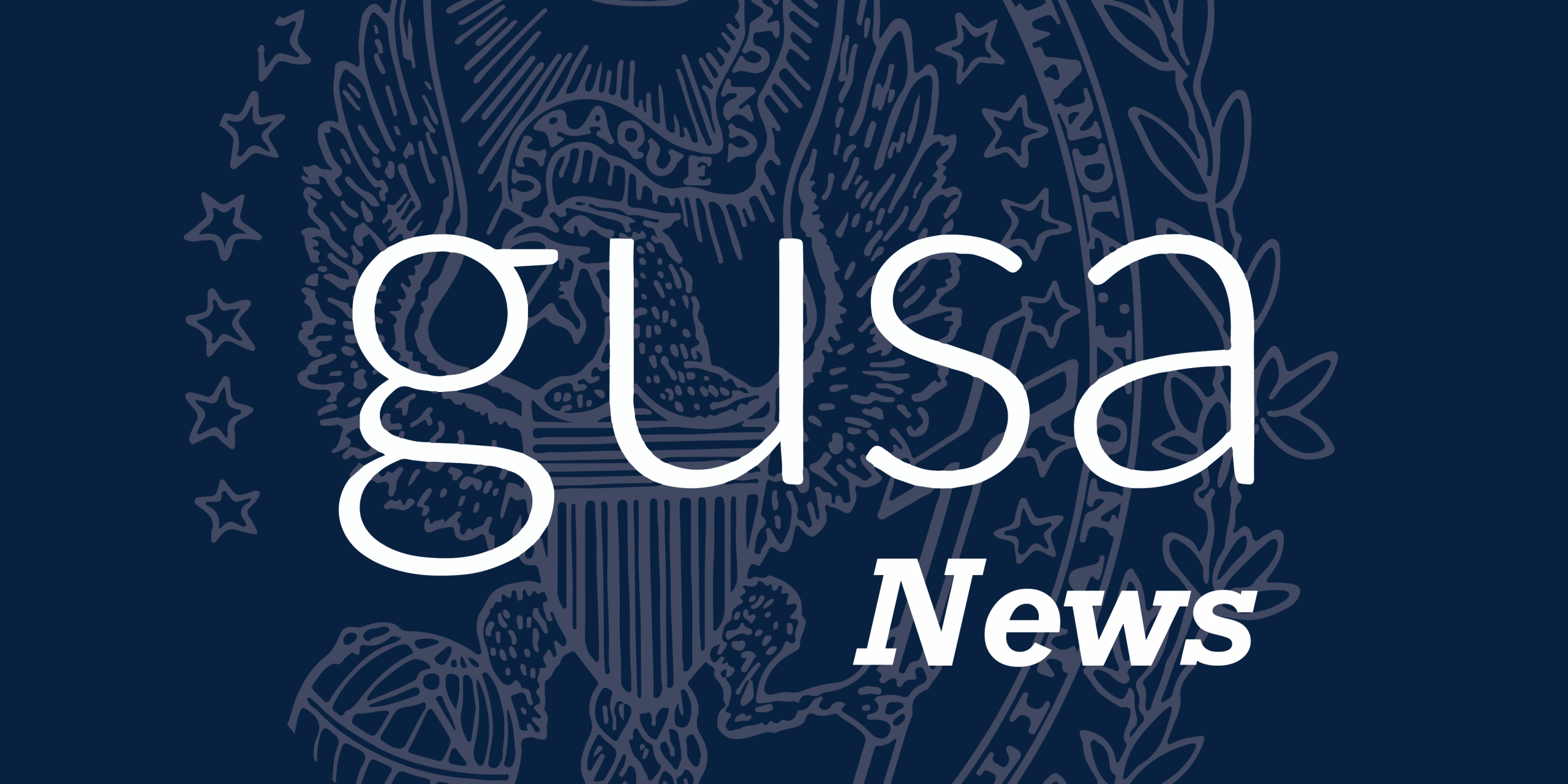GUSA presidential candidates Nile Blass (COL ’22) and Daniella Sanchez (COL ’22) explained their respective tickets’ approaches to advocacy at the GUSA Presidential Debate on Feb. 22. Both candidates touched on the unique features of their campaigns as well as their platforms on GUSA restructuring and ensuring transparency in communication with Georgetown’s administration.
A key element of Sanchez’s campaign that she emphasized throughout the debate was her and running mate Leo Arnett’s (SFS ’22) proposal to establish a Student Bill of Rights. The bill would create a codified list of rights that students could use to hold Georgetown’s administration accountable during negotiations.
“We need a list of solidified, negotiated policies that we can all use together to make sure that no matter whether you’re in GUSA, you have these rights and protections outlined in detail,” Sanchez said. “I want everyone in the future and now to have these rights implemented so that anyone can point to a document that says, ‘I have the right to XYZ. I need to hold you accountable for that.’”
The Student Bill of Rights includes the right to a vote in all administrative decisions that affect students, the right to meetings with administrators over policies affecting students, and the right to transparent communication at all steps of the university decision-making process.
Blass emphasized her and running mate Nicole Sanchez’s (SFS ’22) work within and outside of GUSA to implement policy changes to benefit the student body. She cited her involvement within groups such as the Black Survivors Coalition and the GU272 advocacy group.
“It’s not that I hope to work with BIPOC and queer activists. It’s not that I hope to get financial aid relief and reform. It’s not that I hope to be an advocate for all students. I am, I have been, and I will continue to be if elected,” she said. “When we hit office that first day, things will be done, and they will be done to the benefit of the student body.”
Blass also criticized what she saw as GUSA’s previous failures to ensure diverse student participation. She pledged to improve this issue by prioritizing student representation. “I don’t think we have a prepared, built-in system for student involvement. There are often issues that would’ve gone overlooked if a person from a specific identity hadn’t brought it up in a meeting,” she said.
“What Nicole and I have exhibited is that we prioritize action. We ensure we don’t have to remember who’s not in the room because they’re there.”
Sanchez shared similar concerns about student participation in GUSA, an issue which she attributed to GUSA’s structure. “The Senate itself is just such a source, structurally and institutionally, of toxicity,” she said. “Leo and I plan to address that immediately by working within the Senate to disband itself.”
Sanchez and Arnett have proposed restructuring GUSA to better meet the needs of the student body. Their plan involves disbanding the Senate, giving students more power in allocating club funding, and drafting a new GUSA constitution to reduce bureaucracy.
The current GUSA structure includes too many complicated and elitist procedures for advocacy to be effective, Sanchez said. “Between the Senate and the Executive, there’s a lot of overlapping points and double work that goes on that is not helpful for anyone and just overextends our resources rather than uniting them for a stronger front,” she argued.
Blass agreed, criticizing the lack of power GUSA has to enforce its proposals and sharing her campaign’s ideas for reorganizing GUSA. “When you have a bureaucratic structure without legally binding infrastructure, then it doesn’t matter,” she said. “The administration is very good at making promises and having rhetorical strategies, but ultimately if you don’t have a legally-binding structure, then they’ll promise you anything.”
Instead of a structure that incentivizes hollow promises for the sake of resume-building, Blass argued that GUSA should be a collective structure with open student participation. “We need to create material and open spaces for Georgetown students to continuously learn about what GUSA is, what it should be, the work it has done, and how you can do your own work and be involved collectively,” she said.
However, both candidates recognized that fundamentally restructuring GUSA is a long-term project that would continue beyond either’s administration. Blass emphasized the need for interim advocacy to meet immediate student needs between elections and GUSA sessions. She listed her work with the Black Survivors Coalition as an example of successful advocacy work within Georgetown’s existing structure that has carried through interims.
“[The Black Survivors Coalition] fundamentally reshaped how the administration has perceived issues of sexual harassment, reproductive rights, gendered violence, and institutional accountability,” she said.
Sanchez pointed to her work on establishing Georgetown’s Cultural Climate Survey as an example of her accomplishments as an advocate for student needs. The data for the survey provides advocates with information they can present to Georgetown administrators to prove that issues they identify are real and meaningfully impact students, Sanchez said.
Georgetown has yet to release the data for the survey, Sanchez noted, an issue which her campaign hopes to fix. “Seeing it through is seeing the data results, working with the IDEAA office on how to address the issues that arise, and working with advocacy groups to ensure that they can use the tangible data in their advocacy work,” she said.
Sanchez’s strategy for implementing this change and others related to her platform is placing public pressure on Georgetown’s administration. “Their weakness is bad publicity,” she said. “Placing constant pressure on them will give us these negotiating powers that we’re looking for as a union, as a student body collective, as a power voice united as one.”
An important part of pressuring the administration is ensuring that they maintain clear communication with the student body. “Other universities have shown that their administration can keep students in the loop as they’re planning,” she said. “Everyone needs to be on the same page.”
Blass echoed Sanchez’s strategy of creating public pressure and ensuring transparency within Georgetown’s administration. “The power [of GUSA] is the meetings, the negotiations, the public pressures that we have,” she said. “That’s how you deal with the administration, even without the restructure. I’ve gotten results, and I’ll continue to do so”
Voting for GUSA president and vice president is now open and will continue until 11:59 p.m. EST on Feb. 27.






